Seminars and Panels
|
The Decision to Put David Vetter in the Bubble
Professor James H. Jones
|
Apr 16, 2014
|
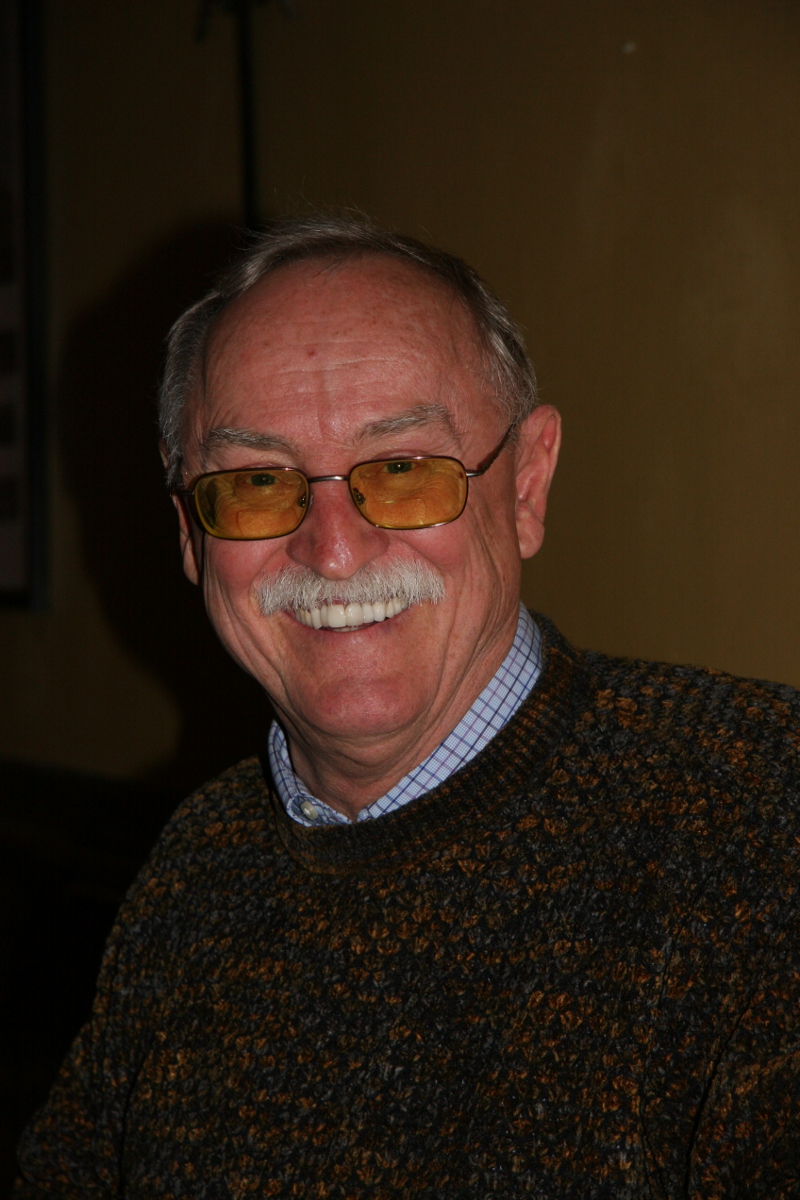
David Vetter (1971-1984) was born with severe combined immune deficiency (SCID), a rare genetic disease that compromises or destroys the immune systems of its victims, leaving them with little or no protection from germs and viruses. Nearly all children who suffer from this disease do not survive for more than a few years. David Vetter lived to be 12 years old, and his amazing survival was hailed as a miracle of modern science. Moments after his birth at the Texas Medical Center in Houston, he was placed in an isolator designed to maintain a germ free environment. The press quickly learned about David and news coverage of the "bubble boy" brought David's story to the world. There is no question that placing David in "the bubble" saved his life, but in the years that followed, the clinicians and medical scientists who cared for David were unable to find a cure for his disease. Nor were they able to devise an exit strategy for freeing him from isolation. As a result, David Vetter spent all but a few days of his life trapped inside his "bubble," unable to touch or be touched by other human beings. Sadly, the few days he was able to escape the isolator came when he was dying and too ill to enjoy his newfound freedom. The "bubble" that kept David alive became his prison, and over time his physical and emotional isolation took a heavy emotional toll on David.
Professor James H. Jones approaches this story as an important case study in human experimentation on children, and he will analyze the complicated decision to place David Vetter in the isolator, with special attention to the ethical issues that were inherent in this decision.
About Professor James H. Jones
James H. Jones is the Distinguished Alumni Professor of History, Emeritus, at the University of Arkansas. He was Distinguished Professor of History at the University of Houston during the 1980s and 1990s. Professor Jones received his Ph.D. in American social and intellectual history from Indiana University. He has held fellowships from the Grant Foundation, the National Institute of Mental Health, Harvard University, The Rockefeller Foundation, and the National Endowment for the Humanities. Jones is the author of Bad Blood: The Tuskegee Syphilis Experiment, A Tragedy of Race and Medicine, which received the Arthur Viseltear Award from the American Public Health Association and was selected by the editors of The New York Times "Book Review" as one of the 12 "Best Books" published in 1981. Bad Blood became a bioethics classic and the Tuskegee experiment a landmark case that shaped the current regulatory framework. Jones’ second book, Alfred C. Kinsey: A Public/Private Life, was one of two finalists for the Pulitizer Prize in biography. His articles and book reviews have appeared in publications as diverse as The New Yorker and The Hastings Report, and he has appeared on "Good Morning America" and "The Today Show." His non-academic passions are baseball and fishing. Jones lives in Washington, D.C. with his wife, Linda Auwers, and their Toy Poodle, Toby.
Click here to view the webcast. |
|
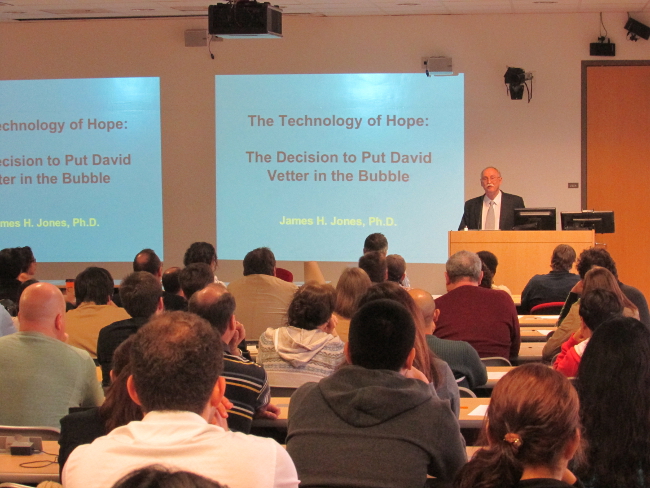
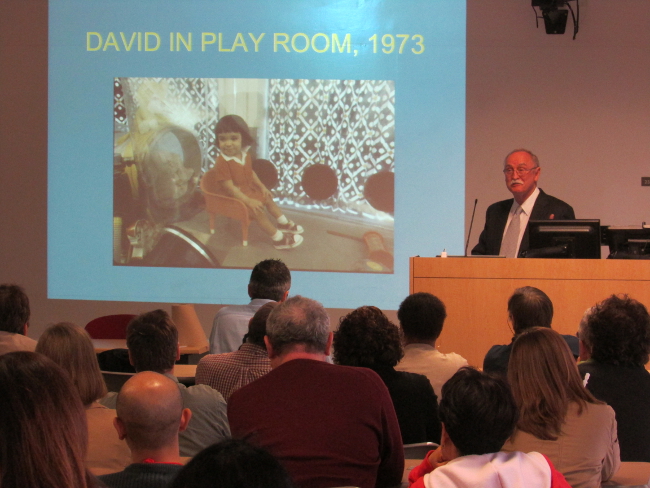
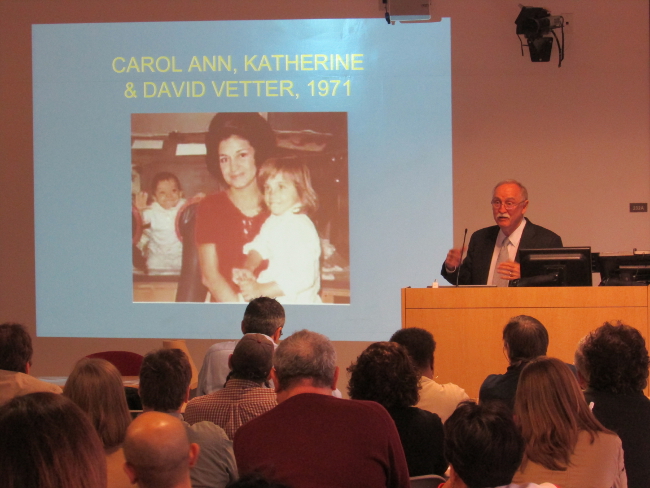
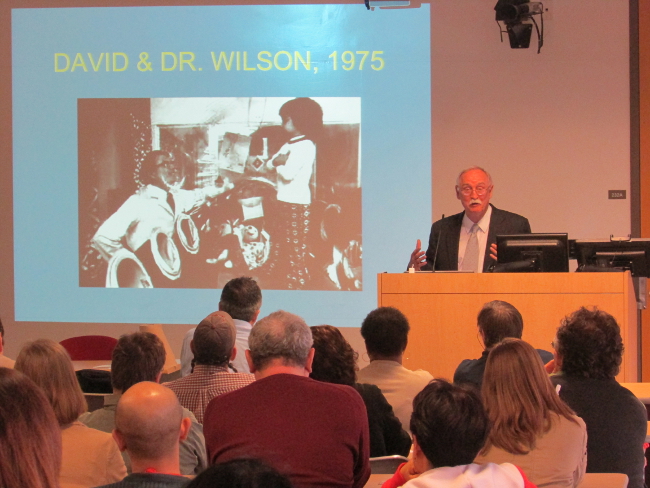
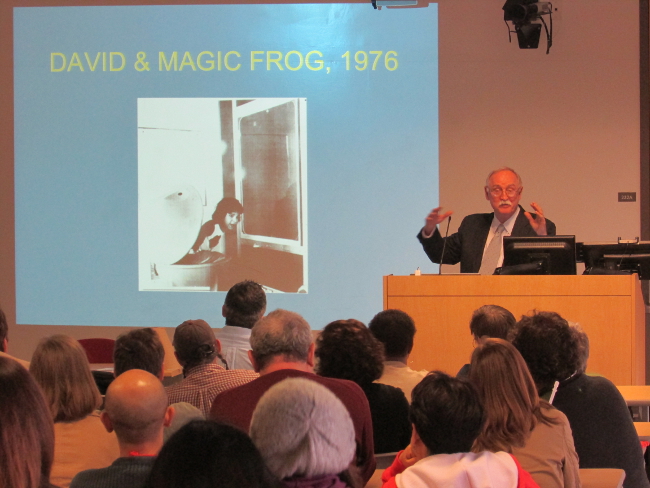
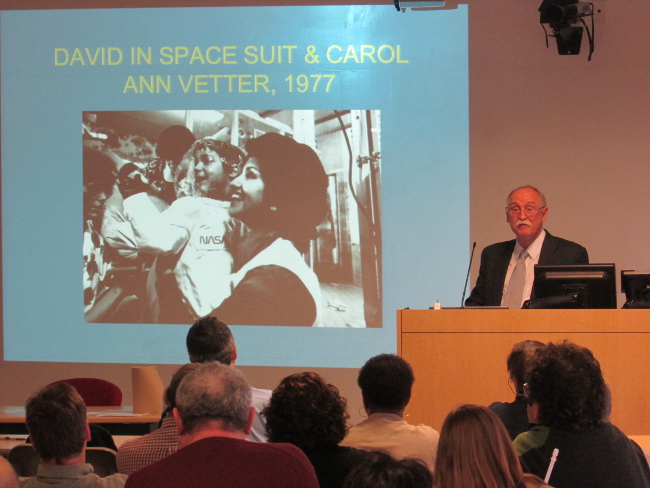
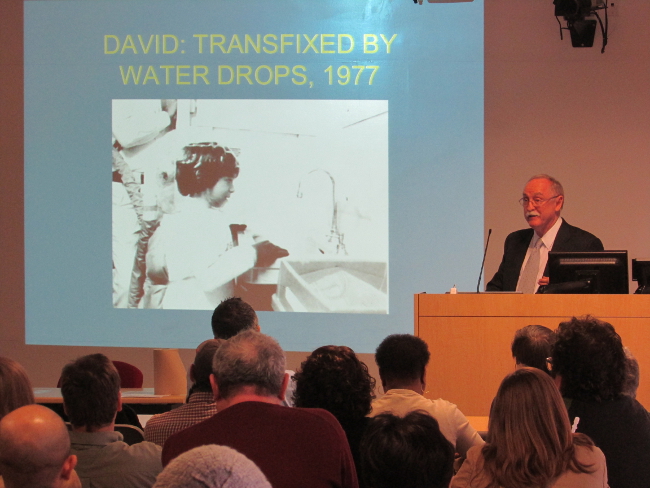
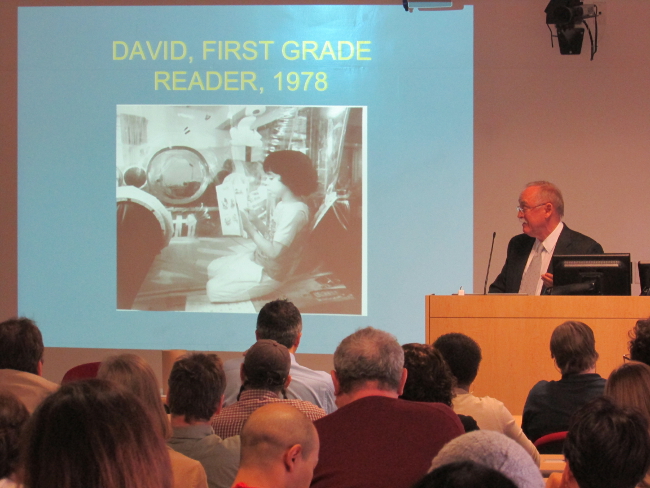
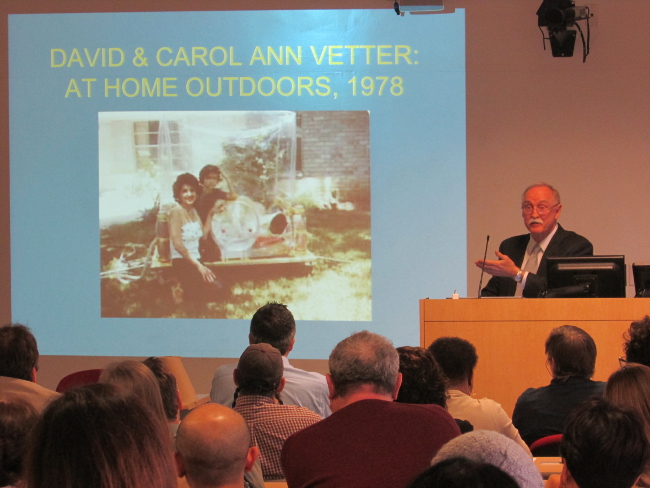
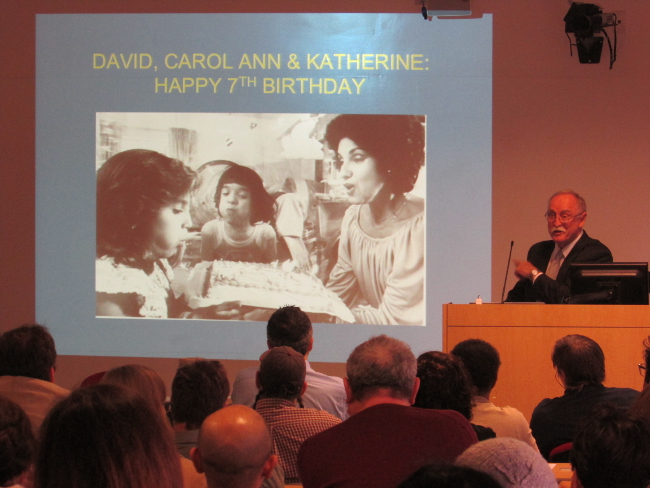
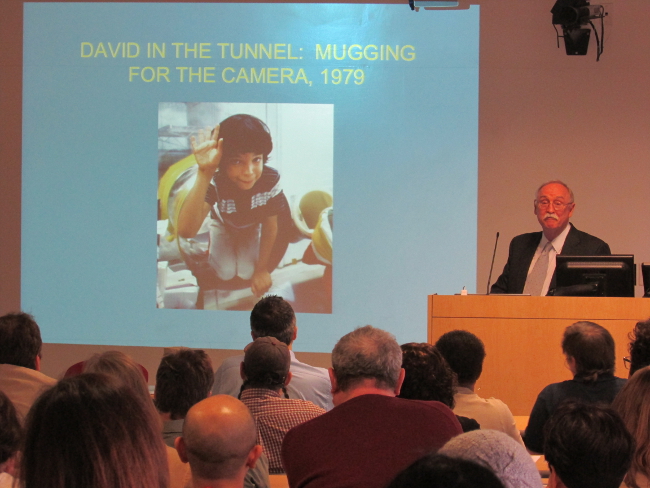
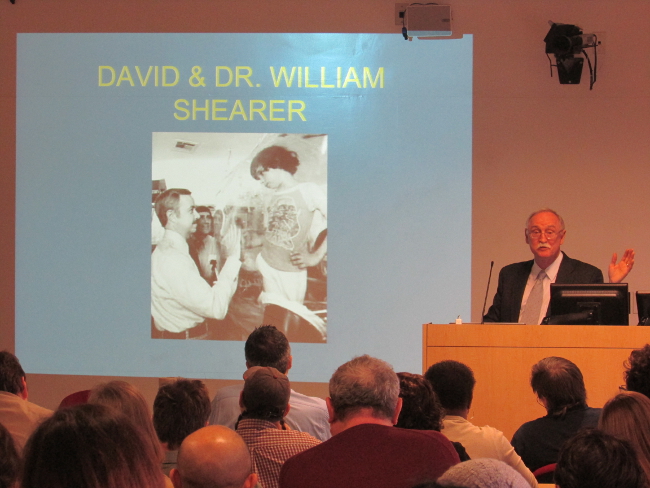
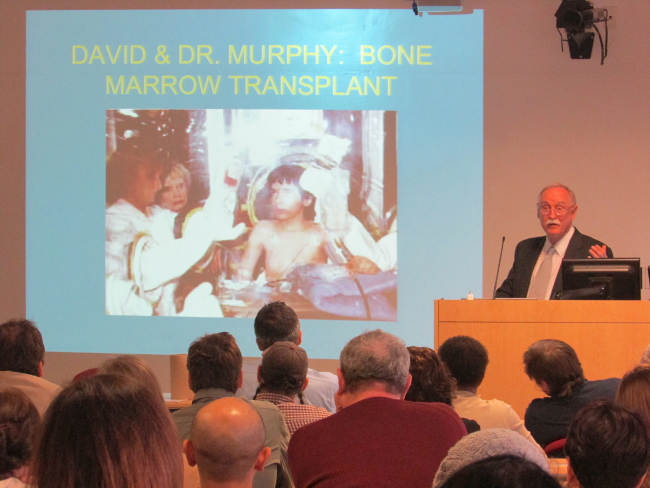
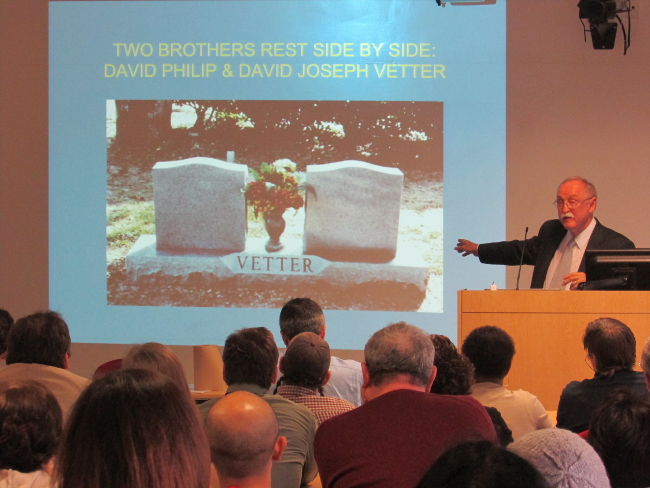
Audience Feedback |
n = 79 |
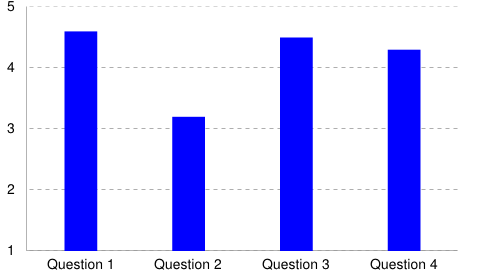
Question 1 - How interesting was the topic to you?
Question 2 - Did you learn anything useful?
Question 3 - How would you rate the quality of the presentation?
Question 4 - How would you rate the quality of the audience's interaction with the speaker?
Selective Comments
"Great Presentation"
"I'm very pleased with this lecture series. It has covered some deeply thoughtful and provoking concepts regarding the field of science. I really hope to continue attending lectures of this calibler at U of H."
"This was very interesting. An excellent presentation and fascinating topic."
- 2017 - 2018
- 2016 - 2017
- Behavioral Concepts and the Sciences of Human Behavior
H. Longino Apr 21, 2017 - Insane Asylums and Genetics: How Human Heredity Became a Data Science
T. Porter Feb 17, 2017 - The Nature of Pride: The Emotional Origins of Social Rank
J. Tracy Jan 23, 2017
- Behavioral Concepts and the Sciences of Human Behavior
- 2015 - 2016
-
Public Ethics, Politics and Sociobiology
M. P. Sheldon Mar 11, 2016 -
Classifying People by Color: How Racial Categories Change Over Time
A. A. Martinez Feb 29, 2016 -
The Origin of Social Impulse: E.O. Wilson's Recent and Controversial Rejection of Kin Selection in Historical Context
A. Gibson Dec 4, 2015
-
Public Ethics, Politics and Sociobiology
- 2014 - 2015
-
Special Event: Lone Star History of Science Meeting Writing the Origin with Burned Fingers: Darwin's Penance for the "Sin of Speculation"A. Sponsel Apr 3, 2015 - Welfare, Work, and Witness: Why Clinical Research Can Survive the Death of a Healthy Human Subject
L. Stark Apr 3, 2015 - The Distinctive Significance of Systemic Risk
A. James Mar 6, 2015 - The Devil's Heritage: Masuo Kodani, the "Nisei Problem," and Social Stratification at the Atomic Bomb Casualty Commission in Japan (1946-1954)
V.B. Smocovitis Jan 28, 2015 - Atypical Combinations and Scientific Impact
B. Uzzi Dec 8, 2014 - Psychology of Science and Technology
M. Gorman Nov 17, 2014 - How Economics Shapes Science
P. Stephan Sep 10, 2014
-
- 2013 - 2014
- The Decision to Put David Vetter in the Bubble
J. H. Jones Apr 16, 2014 - Ethical Paradoxes of
Control: Science, Engineering, and the Expansion of Moral ResponsibilityR. Hollander Mar 3, 2014 - 'Broken Symmetry': Humanism, Militarism, and the Dilemmas of Scientific Identity in Nuclear Age America.
J. Wang Feb 17, 2014 - Using Creative Non-Fiction in Teaching Research Ethics
C.M. Klugman Dec 2, 2013 - Does Neuroscience Undermine Responsibility?
W. Sinnott-Armstrong Nov 15, 2013 - Arming Mother Nature: The Birth of Catastrophic Environmentalism
J. Hamblin Oct 18, 2013
- The Decision to Put David Vetter in the Bubble
- 2012 - 2013
- Lead Wars: the Politics of Science and the Fate of America's Children
D. Rosner Mar 25, 2013 - Identifying potential pitfalls in the quantitative appraisal system for scientific careers
A.M. Petersen Dec 3, 2012 - Keeping Secrets: Scientists' strategic management of militarization, 1945-1980
S. Lindee Nov 12, 2012 - Evolutionary Theory as Methodological Anesthesia: Methodological and Philosophical Lessons from Evolutionary Psychology
R.N. Boyd Oct 19, 2012 - Panel on Peer-Review Issues
Oct 11, 2012
- Can technology enable cities to cope with the economic winter?
A. Hampapur Sep 21, 2012
- Lead Wars: the Politics of Science and the Fate of America's Children
- 2011 - 2012
- Engineering Success and Failure on 9/11
S.K.A. Pfatteicher Apr 27, 2012 - Regulating Ionizing Radiation: Flawed Standard, Flawed Ethics
K.S. Frechette Mar 5, 2012 - Do fish feel pain?
C. Allen Jan 25, 2012 - The Ethics of Relevancy
J. Levine Dec 13, 2011 - ORI Cases and How to Protect Yourself from Research Misconduct in Your Labratory
A.R. Price Nov 7, 2011
- Engineering Success and Failure on 9/11











